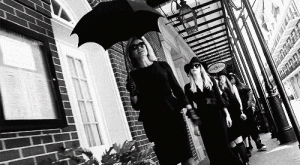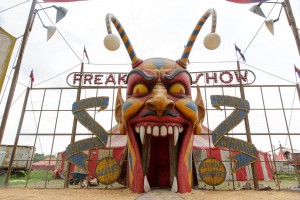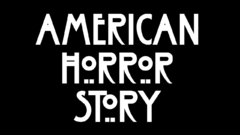The American Horror Story winds down in Florida as cases become involuntarily dismissed by judges
Fri Oct 31, 2014 by Oppenheim Law on Florida Law News
With the ‘zombie foreclosures’ still lingering, at this point let’s call it, The American Horror Story if you will; but, it seems some Florida courts have finally begun to apply the rules of law, civil procedure and evidence in foreclosure cases.
Stopping the “trick -the-homeowner and treat-the-bank” system of procedure and evidence that have haunted Florida homeowners for nearly a decade; finally, the court system ‘gets it.’ And, it appears there is a growing trend of foreclosure cases being involuntarily dismissed by judges as the freak show finally winds down.
Season 1: Murder House – Banks Must Prove Standing
In order for a bank to foreclose on a homeowner, it must prove standing to collect on the subject Note and Mortgage. A bank (or servicer) has standing to foreclose if they can prove that they are the “holder in due course” of the note and mortgage. In the past, banks have desperately attempted to prove standing to collect on countless mortgages and notes that have been bundled, transferred, traded, and sold to numerous different banks, servicers, and entities of the like. These efforts often times included the procuring of forged assignments and other documents in order to prove standing to bring suit on notes and mortgages. After a slap on the wrist from the attorney general in 2010 for their exposed fraud on the court, the banks then turned to unqualified witnesses to attempt to establish standing.
Season 2: Asylum – Zombie-esque Witnesses
In thousands of foreclosure cases across the state, banks are producing witnesses to help prove their cases. In theory these witnesses are supposed to testify and lay the proper foundation for the admittance of evidence that is imperative for each individual foreclosure case across the state. Each witness should have particular knowledge about whether the evidence (various documents and system entries) presented by the bank was made at the time of the event; by a person with knowledge; kept in the ordinary course of business; and done as a regular business practice. If the witness does not meet the qualifications set out in Florida’s Evidence Code, then they are deemed unqualified and the bank’s evidence dies.
Problems arise when a homeowner who creates a note and mortgage with Bank A (which is then sold to Bank B, then assigned to Bank C, who in-turn sells it to Bank D) is foreclosed upon by Bank E. How is Bank E to prove standing to foreclose when they don’t have all the required documentation?
Without going into boring detail, the bank will produce a robo-witness (or for festive purposes, a “Zombie Witness”) from their loan servicing department to testify that at every step along the way each bank or servicer met the requirements for handling the loan and transferring or selling it to others. It doesn’t take a whole lot of common sense to see that a witness employed by Bank E does not have the requisite knowledge or foundation to testify about the happenings in Bank A, B, C, & D.
 Season 3: Coven – Houses No Longer Haunted?
Season 3: Coven – Houses No Longer Haunted?
Until recently, foreclosure defense attorneys had been working rigorously and zealously to prove the banks’ witnesses as unqualified to testify at trial – only to have judges blatantly overlook the rules of the court and allow robo-witnesses to validate the banks’ case.
This past month, several appellate courts across the state have changed their tune, realized their mistakes, and have begun to find banks’ witnesses to be unqualified to testify about vital documents to the case. As a result, there seems to be a growing trend of foreclosure cases being involuntarily dismissed by judges. If the trend continues, we may finally see the double-standard in foreclosure courts come crumbling down, ending the “trick-and-treat” era.
 Season 4: Freak Show – Scary lore finally giving way to the law
Season 4: Freak Show – Scary lore finally giving way to the law
In The Trenches,
Roy Oppenheim



Mr. Oppenheim,
Our foreclosure case went to trial recently and we lost. We want to appeal however the appellant attorney recommended to us by our lawyer said we had no case. Yet we have what we believe to be evidence of robo signing and the plaintiff’s attorney for Deutsche Bank switched their ‘expert witness’ a few days before trial–this was not the witness we deposed. Every thing our attorney objected to was overruled.
We filed for a re-trial but do not expect to get that even through we feel we did not receive fair time and that our judge basically just blew our attorney off. (Please note we had a court reported present at our trial so we have accurate record of all the objections. ) Basically this trial was a sham.
Sir, we have been in our home for 27 years with an outstanding record of payments. My husband is 65 and there is no way we can ever recoup from this. He worked hard all his life and now, thanks to the banks, we have nothing left unless we can get our house back .
Can you offer any advise that might help us. Our home is scheduled to be sold in Jan. 2015.
Thank you,
Lori Robbins
lorirobbins@live.com